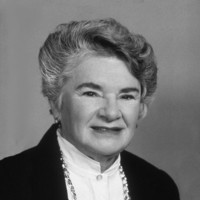Edith: With respect to your recent column about open house looky-loos, I do not agree with your reply. Most sellers do not want a bunch of people (mostly neighbors) traipsing through their house looking for decorating ideas. That's why we have the internet. Those folks should give it a try.
The whole point of an open house is to attract buyers who might be looking in a particular neighborhood. And yes, it's also to the benefit of the real estate agent, who might find new clients.
Other than that, a seller's home is not a showcase for those folks who have nothing better to do than wander around an open house looking at home decor. — no signature
Answer: Thanks for giving us your opinion. Homeowners who don't want the neighbors coming over can certainly tell their broker they don't want any open houses held.
I still feel, though, that the more people viewing a house that's on the market the better. Sure, the neighbors have always been curious about what's in your cupboards and attic, and they may show up, somewhat shamefacedly, at the first open house. But frankly, it might even be wise to invite them. You never know; they may have relatives or friends who have always wanted to live nearby. And in any event, the more people who talk about your house the wider exposure it gets and the likelier it is to sell for true market value.
Equity vs. Profit
Dear Edith: I keep hearing the phrase "equity buildup," and when I asked for an explanation, it sounded like profit. Why two different words? Do they mean the same thing? — B.L.
Answer: Equity represents the money you keep tied up in the house — the amount you could hold in your hand and walk away with if you were to sell the place. It's a larger amount than profit, which is simply how much more the eventual selling price is over and above the original purchase price.
For these examples, let's ignore the legal and other expenses of buying and selling. Let's just say, for instance, that you buy a house for $200,000, putting down $40,000 cash and taking out a mortgage for the rest of the purchase price, $160,000. At the start, your equity in the house, the actual money you invested in it, is $40,000. At that point, you could probably resell for the same $200,000, with no profit at all. You would, though, collect your equity, $40,000.
If, on the other hand, you were to sell years later for $250,000, your profit would be $50,000. Equity is a theoretical number.
Let's assume that in your town, real estate values go up at the delightful rate of 8 percent the next year. The year after you buy the property, it is then worth, at least theoretically, $216,000. You don't sell the house, but your equity has increased. The amount you have tied up in the house is now $56,000 — your original $40,000 and a possible profit of $16,000. Actually, your equity is more than $56,000, because each monthly mortgage payment includes a bit to reduce the mortgage loan. This principal portion is small at the start, when you owe a lot of interest, but it adds to your equity. You no longer owe all of the original $160,000.
Everything else being equal (which, of course, it never is), your equity grows. It's a comforting figure, even if you can never hold it in your hand. And with each month's mortgage payment, you add a bit more equity — the amount you're paying off on that mortgage.
Then, someday, you sell for $300,000 and pay off the remaining loan. Your profit is $100,000. You collect your equity, and it's a higher amount. It includes getting that $40,000 deposit back plus the bits you reduced the mortgage each month plus — ta-da! — the profit.
Contact Edith Lank at www.askedith.com, at edithlank@aol.com or at 240 Hemingway Dr., Rochester, NY 14620.






View Comments